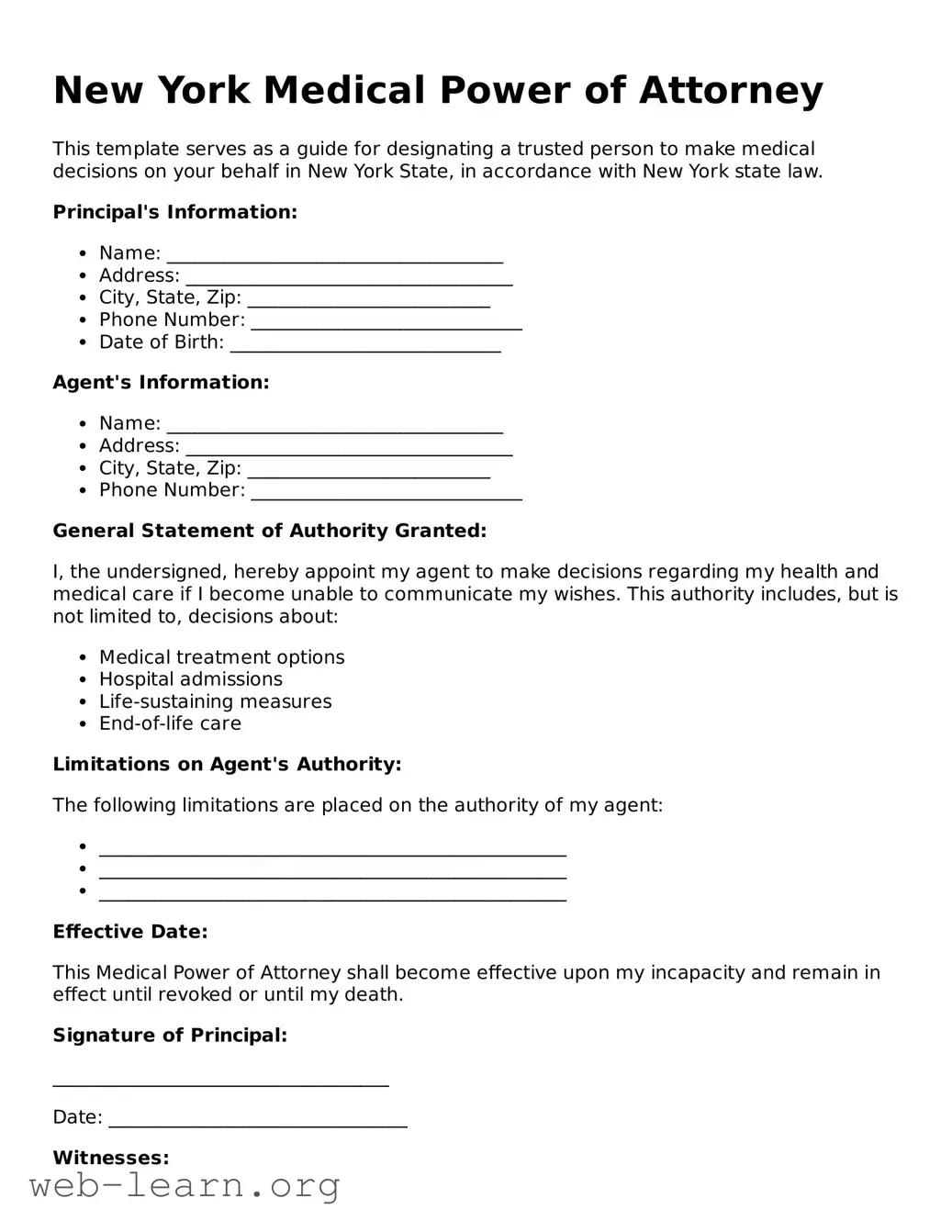New York Medical Power of Attorney
This template serves as a guide for designating a trusted person to make medical decisions on your behalf in New York State, in accordance with New York state law.
Principal's Information:
- Name: ____________________________________
- Address: ___________________________________
- City, State, Zip: __________________________
- Phone Number: _____________________________
- Date of Birth: _____________________________
Agent's Information:
- Name: ____________________________________
- Address: ___________________________________
- City, State, Zip: __________________________
- Phone Number: _____________________________
General Statement of Authority Granted:
I, the undersigned, hereby appoint my agent to make decisions regarding my health and medical care if I become unable to communicate my wishes. This authority includes, but is not limited to, decisions about:
- Medical treatment options
- Hospital admissions
- Life-sustaining measures
- End-of-life care
Limitations on Agent's Authority:
The following limitations are placed on the authority of my agent:
- __________________________________________________
- __________________________________________________
- __________________________________________________
Effective Date:
This Medical Power of Attorney shall become effective upon my incapacity and remain in effect until revoked or until my death.
Signature of Principal:
____________________________________
Date: ________________________________
Witnesses:
- Witness 1 Signature: ____________________________
- Witness 1 Name: ________________________________
- Witness 2 Signature: ____________________________
- Witness 2 Name: ________________________________
